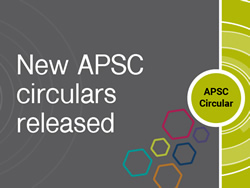
Australian Public Service Commission. Photo: Michelle Kroll.
Recruitment merit lists created by non-APS intelligence agencies such as the Australian Signals Directorate can now be shared across the Australian Public Service, in a new move aimed at improving employment opportunities in the sector.
That’s just one change new Australian Public Service Commissioner Gordon de Brouwer has implemented with amendments to official directions for agency recruitment, in order to bolster integrity in the process and streamline its administration.
The commission’s directions from last year have been updated by the new APS boss in what the agency says will provide consistency with the latest Public Service Regulations introduced this year.
The requirement for agreement between two separate agency heads that a vacancy is a ‘similar vacancy’ no longer applies where both vacancies are within the same agency.
And where an agency uses external advertising in addition to a Public Service Gazette notice, the closing date for all advertisements must be the same date.
Provisions for probation will no longer apply to irregular and intermittent employees.
Directions have been amended to modify both the initial and maximum term of employment for non-ongoing employees, where a merit-based process was not undertaken.
The period has been amended to an initial period of up to 12 months, with the option to extend for a further six months, for a total maximum term of 18 months.
“This change limits the risk of a non-ongoing employee being unintentionally converted to ongoing via automatic application of the new Fair Work Act mechanisms without undergoing a merit-based process,” an APSC circular states.
“This change will only apply when engaging a person as a non-ongoing APS employee without a merit selection process.
“If a merit selection process is conducted, a non-ongoing employee will, subject to the operation of the new FW Act provisions, be able to be engaged for the longer periods provided for by … the 2023 Regulations.”
In addition, the directions have been amended to simplify the notification requirements where an agency decides not to include the name in a promotion notification because of the person’s related work or personal circumstance.
There is a new requirement for the agency head to provide the name of the promoted candidate to the Merit Protection Commissioner if requested.
“This change harmonises the requirement with other promotion notifications while still ensuring the MPC can uphold the promotion review process,” it states.
“Agencies are still required to notify the Australian Public Service Commissioner where a decision not to include a name in a notification is made.”
In addressing the integrity of the recruitment process, the amendments also include a new provision to ensure agencies meet requirements to update the Gazette of promotions.
Where it is identified an agency has not gazetted a promotion decision, the agency will be required to notify the decision in the Gazette; and if the notification relates to a promotion that may be subject to review by a Promotion Review Committee, notify all applicants of their promotional rights.
The provision prescribes the date the promotion takes effect.
Along with the consequential amendments made as a result of the 2023 Regulations, a number of minor technical amendments have been added to help streamline administration of the recruiting process.
“Agencies should review and update internal policies and procedures to ensure they appropriately reflect any changes in the directions,” the circular states.
“Agencies should consider how to incorporate the changes to non-ongoing arrangements into their recruitment processes.
“Instruments of delegation for agency head powers and functions will continue to have force, however agencies should review and update their delegations for any new functions, duties or powers.”
Original Article published by Chris Johnson on Riotact.










